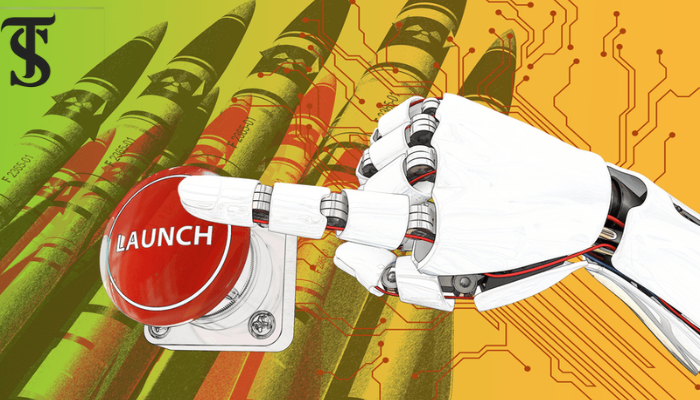Artificial Intelligence Revolutionizes Global Industries

In recent years, Artificial Intelligence (AI) has emerged as a revolutionary force, reshaping businesses and everyday life. From virtual assistants like Siri and Alexa to self-driving cars and personalized healthcare, AI continues to influence a wide range of industries.
According to a McKinsey report, AI could add up to $13 trillion to global GDP by 2030. However, as AI technology advances, concerns about job displacement, bias, and ethical implications are on the rise. “The benefits of AI are undeniable, but we must address the challenges it poses,” argues Dr. Rachel Kim, an AI ethicist at Stanford. “We need to ensure that AI systems are transparent, explainable, and fair.”
AI innovation has the potential to boost human productivity across virtually every sector, including manufacturing, finance, and environmental management. AI-powered tools can also enhance outcomes in education and healthcare. The World Health Organization has outlined five key areas where AI could benefit humanity at large. For example, AI may become a game-changer for the information economy—fueling financial growth and progress—and it could monitor the economic impact of climate change in countries like Pakistan by alerting governments and citizens to impending environmental disasters.
One major advantage of AI over human labor is its precision and consistency. In today’s data-driven world, information is a strategic asset that can enhance security and economic development. Generative AI tools—such as Midjourney and ChatGPT—are increasingly common in creating content for chatbots and other applications. Tech companies are racing to govern the global market through AI-powered platforms, investing billions to capitalize on these opportunities. Emerging platforms like Xai and Eleven Labs have already achieved “unicorn” status in their latest funding rounds.
The CEO of OpenAI plans to invest billions of dollars in a network of AI chip manufacturers, underscoring AI’s strategic importance to industry. Meanwhile, the U.S. edutech platform Coursera adds a new learner to its AI courses every minute on average—evidence of AI’s relevance in education. Artists, too, are embracing AI: Google Labs’ AI art generator offers millions of creative possibilities for marketers and designers.
At the same time, AI’s rise introduces new cybersecurity risks. As AI-driven systems become more widespread, cyberattacks are expected to increase, prompting organizations to bolster their defenses. Another major concern is AI’s potential use in warfare: autonomous weapons could spark endless conflict without understanding the human cost. That is why global regulation of AI is essential.
AI has also become a powerful tool for disseminating information—both legitimate and false. In 2025, more than 70 countries will hold elections, and policymakers worry that AI-powered misinformation could sway outcomes. Social-media platforms such as Facebook, WhatsApp, X (formerly Twitter), and YouTube can rapidly amplify false narratives.
Technological advances inevitably transform the labor market. Many jobs from the last century—such as ice cutters, lamp lighters, rat exterminators, and telegraph operators—no longer exist. Yet new roles have emerged: computer engineers, video-game developers, app designers, drone pilots, 3D-printing technicians, social-media managers, web designers, YouTubers, bloggers, and data analysts.
The critical issue with AI is not simply that it will replace many current jobs—it’s the speed at which this change will occur. Therefore, it is vital to anticipate developments over the next 10 to 20 years and design effective policy transitions to mitigate adverse effects.
As AI continues to evolve, its impact will resonate for generations. AI is revolutionizing healthcare, education, and the workforce—and shaping humanity’s future. As we explore its potential, responsible development and careful attention to ethical consequences must remain our highest priorities.
The author is currently pursuing an MPhil in International Relations at Kinnaird College for Women University.





